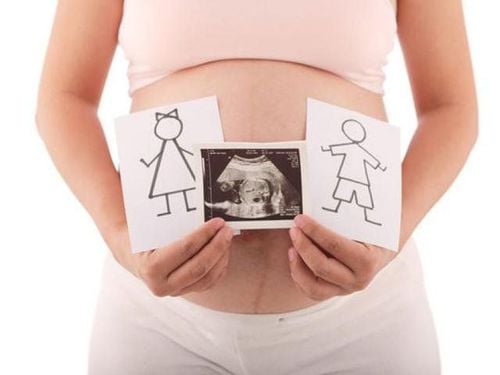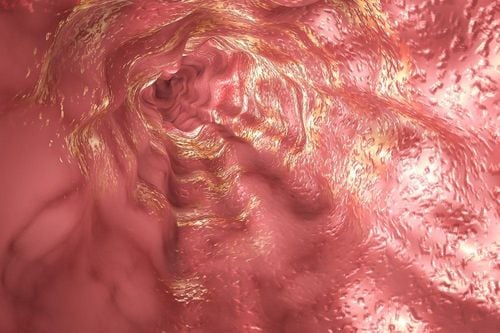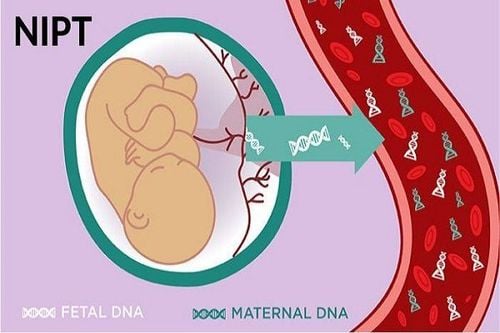This is an automatically translated article.
Article by Specialist Doctor II Nguyen Thu Hoai - Unit Head of Obstetrics and Gynecology Clinic - Women's Health Center - Vinmec Times City International Hospital
NIPT test is an extremely popular and highly appreciated prenatal screening technique when determining the risk ratio of the fetus being born with abnormal signs. Actively learning about the value of the NIPT test and what to do if the NIPT test fails will help you make the right decisions.
1. Learn about the value of the NIPT . test
NIPT test, also known as NIPS, is a prenatal screening test that detects chromosomal abnormalities such as: Down syndrome - Trisomy 21, Edwards syndrome - Trisomy 18, Patau syndrome - Trisomy 13 or sex-chromosomal aneuploidies) by analysis of maternal blood free fetal and placental DNA (cfDNA). This test is increasingly used in prenatal screening because of its high screening efficiency. The screening effectiveness of the NIPT test is described by the detection rate (DR) and the false positive rate (FPR). Based on multiple meta-analyses, the overall DR and FPR rates of the NIPS test are as follows:
For Trisomy 21 detection - DR 99.5%, 0.05% FPR,
For Trisomy 18 detection - DR 97.7%, FPR 0.04 %
● For Trisomy 13 detection - DR 96.1%, FPR 0.06%
However, with sex chromosome abnormalities, cfDNA detection rate lower and higher false positive rates. In the meta-analysis evaluating the performance of cfDNA testing for sex chromosome anomalies, the DR and FPR for haploinsufficiency X (Turner Syndrome – XO) were 90.3 and 0.23%, respectively. For the sex chromosome trio 47, XXX; 47, XXY; and 47, XYY, DR and FPR are 93.0 and 0.14%, respectively.
Watch now: The scientific basis of the NIPT prenatal screening test

2. What to do if the NIPT test fails?
Thus, it can be seen that NIPT has a high value to help detect triploidy abnormalities 21, 18, 13. However, this is only a screening test, positive cases need to be amniocentesis or fetal venous blood taken for genetic testing to confirm.
In addition, there is a small percentage of blood samples that cannot be tested for NIPT (usually laboratories say failure/failure samples). The average estimated failure rate for laboratories is 2% (ranging from 0-10%), this large variation is difficult to explain. The most common reasons for failed NIPT test results include low fetal cfDNA, insufficient number of sequenced and/or aligned fragments, IVF pregnancy, twin pregnancy. So what should the mother do if the blood sample fails?
Pregnant mothers need to be consulted and explained by a genetic specialist. Because there is currently no standard approach to this situation, it is common for a pregnant woman to have a blood sample taken for testing. In certain cases (severely obese patients), a Double test or Triple test can be used if not already done, or screening ultrasound and ultimately invasive diagnostic testing can be used ( amniocentesis, fetal umbilical vein blood collection) if the pregnancy has been considered "high-risk".
The American College of Obstetricians and Gynecologists (ACOG) recommends informing patients that test failure is associated with an increased risk of aneuploidy, that patients receive additional genetic counseling, and that provides comprehensive ultrasound evaluation and diagnostic testing.
Non-invasive prenatal screening technique NIPT is being implemented at Vinmec International General Hospital, bringing outstanding improvement in prenatal screening results, high service quality according to the standards recommended by ILLUMINA help early and effective intervention with fetuses at high risk of birth defects. When performing an examination at Vinmec, customers will be fully consulted and consulted about the principles, meanings, and possible results when performing NIPT with a genetic pathologist. All procedures for taking and transporting blood samples containing mother and child DNA are according to ISO 15189/2012 standard and sent to the Genome Research Institute for analysis. All problems are performed by a team of doctors, experts with many years of experience, trained in domestic and foreign environments, so customers can be assured of the accuracy of the results.
In addition to single services, the hospital also has a package Maternity Care program to help pregnant women take care of their health and take exams before, during and after giving birth with all necessary tests. .
Please dial HOTLINE for more information or register for an appointment HERE. Download MyVinmec app to make appointments faster and to manage your bookings easily.














